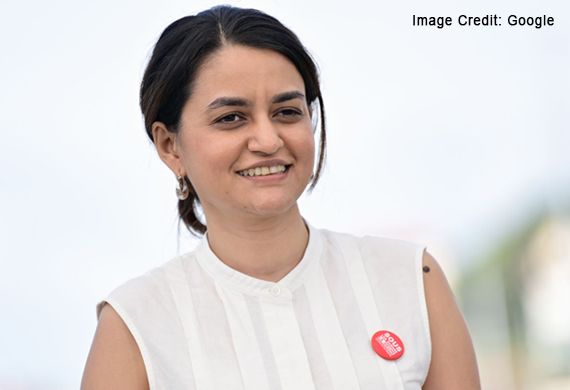
Meet Payal Kapadia, the Prodigal Storyteller Who Won Cannes Grand Prix prize
By: WE Staff
Payal Kapadia is the winner of the prestigious Grand Prix prize at the Cannes Film Festival 2024. The Indian filmmaker creates lyrical, poetic films that blend real and imagined elements that are deeply personal yet resonate with broader social and political themes, making her a distinctive voice in contemporary Indian cinema.
Indian women filmmakers are revolutionizing the Indian film industry by challenging traditional narratives and presenting fresh perspectives. Their visual storytelling is enriching the cultural tapestry of Indian cinema while promoting a more equitable gender representation in the field of filmmaking as well.
Female filmmakers, although few in number, have been known to explore diverse genres and address complex social issues, often focusing on gender equality, breaking stereotypes, and challenging societal norms and personal identity.
Their stories are authentic, emotional, and culturally contextual, gaining international recognition and awards. Their work contributes to a more inclusive and dynamic film industry.
Out of these legendary women filmmakers, Payal Kapadia has become a shining star in the Indian cinema's books. She has created history by becoming the first Indian director to win the prestigious Grand Prix prize at the Cannes Film Festival. Her Malayalam-language movie "All We Imagine as Light" won the prestigious honor, which is the second-most prestigious award, after the Palme d'Or.
Payal is a renowned Indian and international filmmaker known for her innovative approach, emotional depth, and unique blend of documentary and fiction, offering profound insights into human experiences.
Early Life
The renowned Indian filmmaker, Payal was born in Mumbai and gained exposure to avant-garde filmmakers at Rishi Valley School in Andhra Pradesh and St. Xavier's College, Mumbai. She studied film direction at the renowned Film and Television Institute of India (FTII) in Pune, which has been instrumental in shaping her cinematic style and vision. Payal faced numerous challenges in her journey at the institution. Despite setting back, her passion for filmmaking and dedication to her artistic excellence led her to create impactful films that resonate with audiences worldwide.
Filmmaking Journey
Payal debuted as a filmmaker in 2014 with the short film "Watermelon, Fish and Half Ghost." In 2021, she directed the documentary film "A Night of Knowing Nothing" which earned her the prestigious Oeil d'Or (Golden Eye) award for best documentary at the Cannes Film Festival 2021. During the 70th Cannes in 2017, her film "Afternoon Clouds" was the only Indian film selected that garnered wide attention.
Very recently, Payal created history at the 77th Cannes Film Festival becoming the first Indian director to win the Grand Prix prize for her Malayalam-language film "All We Imagine as Light" which is the second most prestigious honor, after Palme d'Or. It is also the only film made by an Indian woman director to reach the top spot.
The trailer for the film was unveiled on May 8. It follows the life of protagonist Prabha, a nurse whose world is turned upside down after receiving an unexpected gift from her long-estranged husband, and Anu, her roommate, who tries to find a private space with her lover in the busy city. However, both the women set for a road trip to a beach town where they realize their dreams and find space to unfold them. The film explores themes of womanhood and relationships through everyday life. This is Payal's first feature directorial and the first Indian film to feature in the main competition in 30 years. Additionally, she also features as one of the only four female-directed films coming for the Palme d'Or award this year.
Payal expressed her emotions during the event she felt after receiving the award, "I'm very nervous, so I wrote something down. Thank you to the Cannes Film Festival for having our film here. Please don't wait 30 years to have another Indian film. This film is about friendship, about three very different women. Oftentimes, women are pitted against each other. This is the way our society is designed and it is really unfortunate. But for me, friendship is a very important relationship because it can lead to greater solidarity, inclusivity, and empathy," said Kapadia, who was accompanied by the three actors on the stage.”






